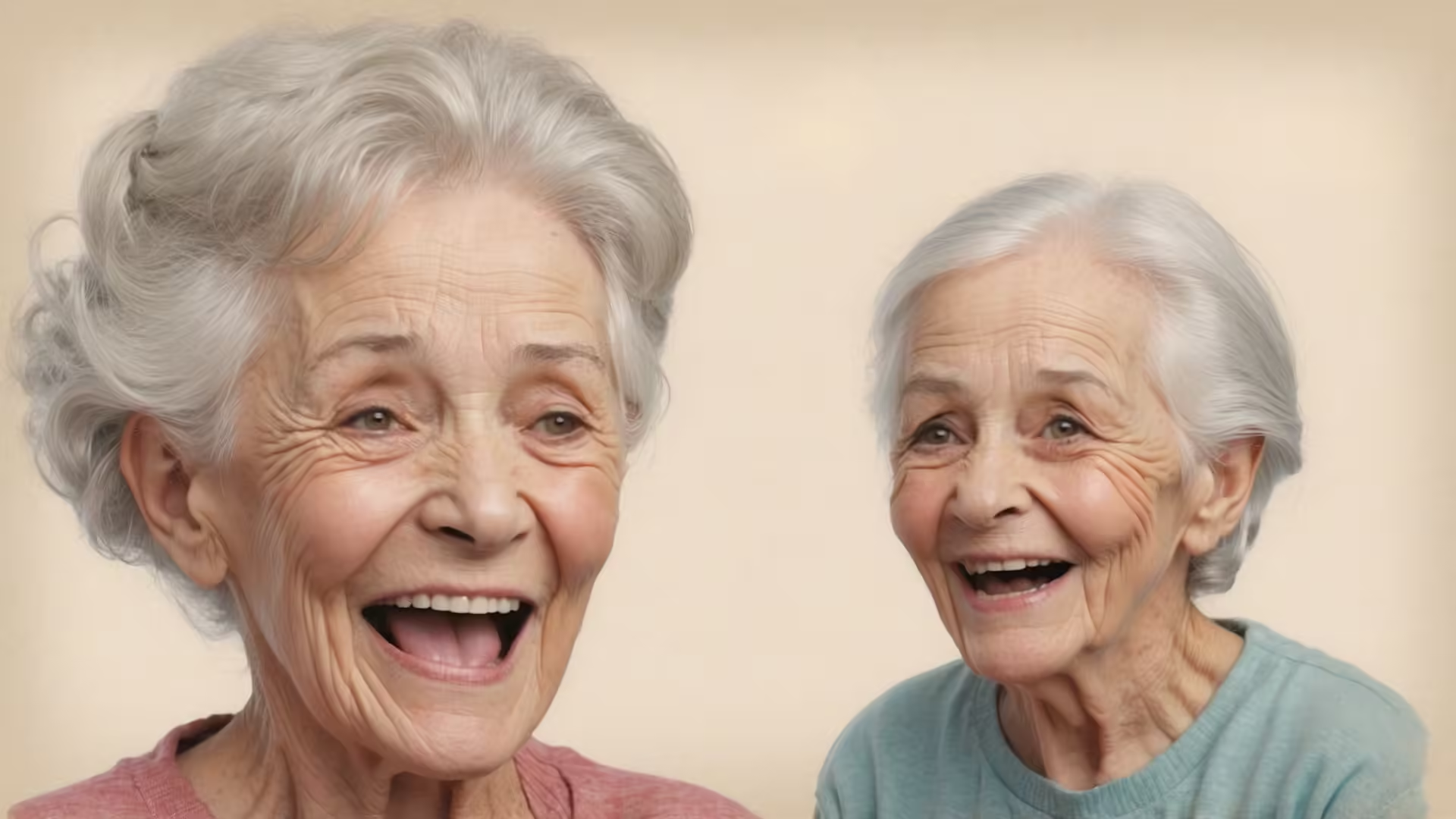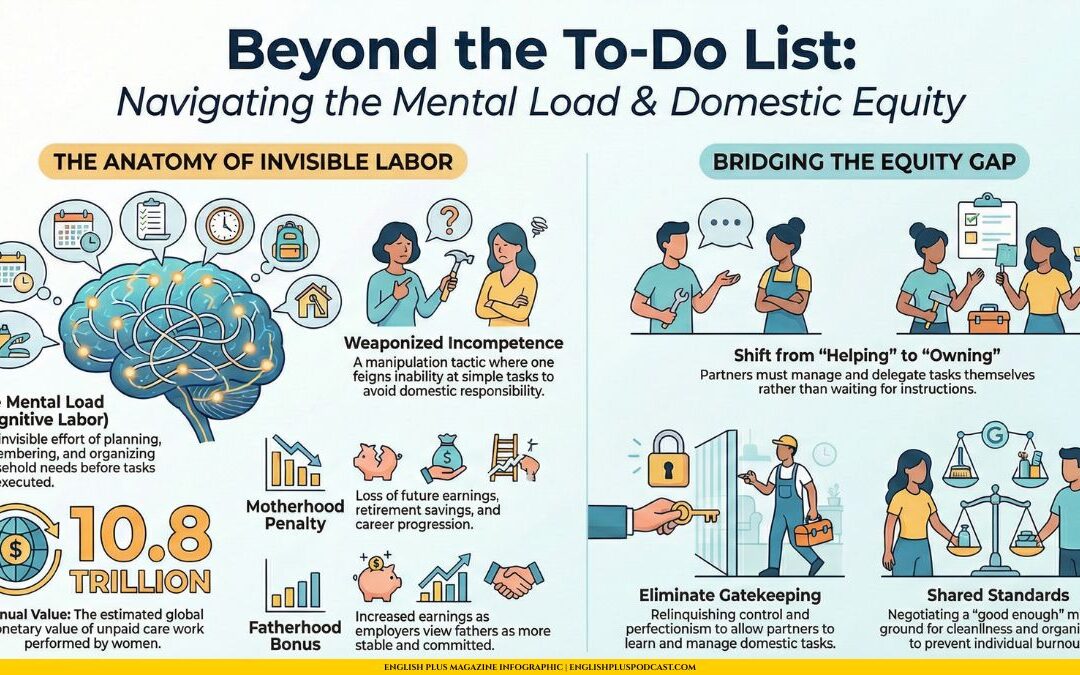- The Gist
- Can Your Mindset Really Change the Aging Process?
- The Science Behind the Mind-Body Connection
- The Role of Self-Fulfilling Prophecies
- Real-Life Examples of Positive Aging
- How to Shift Your Beliefs About Aging
- Why It Matters More Than You Think
- Final Thoughts
- Let’s Talk
- Let’s Learn Vocabulary in Context
The Gist
Can Your Mindset Really Change the Aging Process?
The idea that your beliefs about aging can affect how you age might sound too good to be true, but science backs it up. Studies by psychologists and gerontologists reveal that people who view aging as a natural and fulfilling part of life tend to age more gracefully. They are less likely to experience chronic stress, depression, and physical decline. On the other hand, those with negative beliefs about aging—like assuming that getting older automatically means becoming frail or unhappy—are more prone to health issues, including cognitive decline.
The Science Behind the Mind-Body Connection
How does this connection work? It has a lot to do with how thoughts influence behavior. If you believe that aging is a time for growth and new experiences, you’re more likely to engage in activities that keep you mentally and physically fit. Positive beliefs encourage you to stay socially active, exercise regularly, and try new things—all of which contribute to better health. In contrast, negative thoughts about aging can lead to inactivity, isolation, and stress, which in turn affect both your physical and mental well-being.
The Role of Self-Fulfilling Prophecies
Ever heard of a self-fulfilling prophecy? It’s when your beliefs shape your actions, and those actions make your belief come true. In the context of aging, if you believe you’re “too old” to try new things, you probably won’t. And guess what? Over time, this belief can limit your abilities. On the flip side, if you believe that aging brings opportunities—like learning new skills or deepening relationships—you’re more likely to pursue those things, keeping your mind sharp and your spirit youthful.
Real-Life Examples of Positive Aging
Take a look at people who defy stereotypes about aging, like marathon runners in their 80s or individuals who start new careers after retirement. These people aren’t just lucky; they embrace a mindset that says, “I can keep growing and improving.” Their stories are living proof that age is more than just a number—it’s a state of mind. One famous example is Ernestine Shepherd, a bodybuilder who didn’t start exercising until her 50s and went on to become one of the world’s oldest female bodybuilders.
How to Shift Your Beliefs About Aging
The good news is that it’s never too late to change how you think about getting older. Here are some ways to adopt a healthier mindset:
- Challenge stereotypes about aging by surrounding yourself with positive role models.
- Stay active, both mentally and physically. Learning something new or joining a hobby group can work wonders.
- Practice gratitude by focusing on what you gain with age, like wisdom and experience, rather than what you lose.
- Engage socially by maintaining meaningful connections with friends and family. Staying connected boosts both your mood and your mental sharpness.
Why It Matters More Than You Think
Our culture tends to glorify youth and view aging as something to avoid, but this mindset does more harm than good. When we adopt negative beliefs about aging, we carry unnecessary stress and miss out on the joys of growing older. Aging isn’t just about decline; it’s about transformation and evolving into new stages of life. Every stage has its own beauty, challenges, and opportunities.
Final Thoughts
The way you think about aging matters more than you realize. If you believe that life can still be exciting and meaningful as you grow older, you’re more likely to stay healthy and active. And the best part? It’s never too late to change how you think. Your beliefs are powerful—they shape your experiences, your choices, and ultimately, your quality of life. So the next time you catch yourself thinking, “I’m too old for this,” try flipping that thought around. You might be surprised by what you’re capable of.
Let’s Talk
So, what do you think—can changing how you feel about aging really change the way you age? It’s kind of mind-blowing, isn’t it? We spend so much time worrying about getting older, but it turns out the real problem might be how we think about it. The way I see it, we’re constantly bombarded with messages that say aging equals decline—whether it’s commercials for anti-wrinkle creams or jokes about “getting old.” But what if we just stopped buying into that idea? What if aging isn’t about slowing down but about evolving?
Think about it: ever notice how some people seem to grow older without losing their spark? They’re still learning, laughing, and trying new things, like taking up painting at 60 or running their first 5K in their 70s. That’s not magic—it’s mindset. And once you start believing that your best days aren’t behind you, you’re more likely to seek out experiences that keep you feeling alive. It’s almost like the brain says, “Oh, we’re still doing this? Cool, let’s keep going.”
I get it, though—changing your mindset is easier said than done. We’ve all had those moments where a little voice inside says, “Nah, you’re too old for that.” I mean, how many times have you thought about trying something new—like dancing lessons or learning a language—only to talk yourself out of it because you felt like your time had passed? What’s funny is that kids never think that way. They’ll dive into anything, no hesitation. Somewhere along the way, though, we start placing limits on ourselves. But who says those limits are real?
Here’s a little challenge for you: next time you catch yourself thinking you’re too old for something, try flipping that thought around. Instead of “I can’t,” say “Why not?” and see what happens. You might surprise yourself. And even if it doesn’t go perfectly—who cares? One of the perks of getting older is that you stop worrying so much about what other people think, right? So why not lean into that freedom a little more?
And here’s another thing—have you noticed how much aging is tied to the company we keep? Surround yourself with people who are excited about life, and suddenly, aging feels like less of a burden. On the flip side, if you’re constantly around folks who see aging as nothing but decline, it’s easy to fall into that trap too. It makes you think: how much of our mindset is really ours, and how much of it do we absorb from the people around us?
So, what’s one belief you’ve had about aging that you think might be holding you back? And what’s something new you’ve always wanted to try but never did because you thought the ship had sailed? Maybe it’s time to revisit those things. Because if there’s one thing this whole idea teaches us, it’s that we’ve got more control over our aging experience than we think. And honestly, who says we can’t age with a little bit of mischief, a lot of learning, and a whole lot of joy?
Let’s Learn Vocabulary in Context
Let’s dive into some of the key words and phrases that came up while talking about how your beliefs influence the way you age. These aren’t just concepts—they’re useful in everyday conversations too, whether you’re chatting with friends or thinking through your own mindset.
First, there’s mindset, which refers to the way you think about something. It’s more than just a passing thought—it shapes how you approach challenges. If you’ve ever said, “I can’t do this,” and gave up, that’s a fixed mindset. But saying, “This might be tough, but I’ll try,” shows a growth mindset.
Next up is self-fulfilling prophecy. This phrase means that what you believe can shape what actually happens. It’s like telling yourself, “I’ll never be good at public speaking,” and then—surprise—you get nervous and stumble through your presentation. Your belief feeds the outcome.
We also talked about aging gracefully, which means staying positive and engaged as you grow older. It’s not just about looking young—it’s about embracing each stage of life with a good attitude. Someone might say, “She’s aging gracefully—always learning, always laughing.”
Cognitive decline popped up too, which refers to the natural decrease in mental abilities over time. But it’s not inevitable! Staying mentally active with things like puzzles, reading, or learning new skills can slow it down.
Then there’s belief, which might sound simple, but it holds a lot of power. Beliefs shape how you behave—whether it’s believing in yourself or falling into negative thought patterns. “He believes he’s too old to change careers,” is an example of how belief can limit your potential.
We also have stereotype, which is an oversimplified idea about a group or concept. With aging, stereotypes can make people think life after 60 is just about decline. “Don’t fall for stereotypes—people of all ages are running marathons now.”
Active lifestyle came up too. This doesn’t mean you have to hit the gym every day—it’s about staying physically and mentally engaged. “She keeps an active lifestyle by walking every day and volunteering at the library.”
Gratitude is another key word. It’s the practice of being thankful for what you have, which research shows can improve well-being. “Practicing gratitude helps me focus on the good things, even when life gets tough.”
Then there’s engage, which means to get involved or participate actively. Staying engaged with life—whether through hobbies, relationships, or work—can keep your mind sharp. “He engages with his community through weekly chess games.”
Finally, opportunity stands out. Aging isn’t just about challenges—it’s full of new opportunities if you’re open to them. “Every stage of life brings opportunities; the trick is recognizing them.”
Here are a couple of questions to reflect on: What’s one stereotype about aging you think we should challenge? And how could shifting your mindset create new opportunities for you, no matter your age?










0 Comments